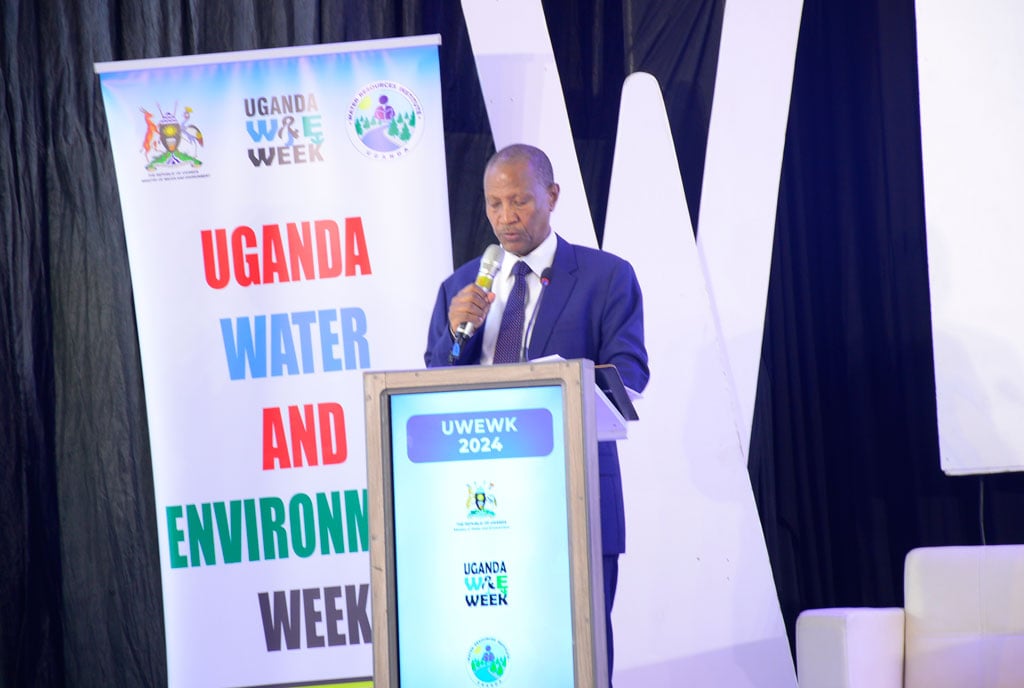An environment court has been long overdue

Author: Noel Muhangi. PHOTO/COURTESY/FILE
What you need to know:
- Ugandan judges have the required training to handle matters related to environmental litigation.
This year’s Uganda water and environment week (UWEWK) commenced on March 18, with exhibitions by innovators and presentations by stakeholders in the sector.
The week-long event held at the Ministry of Water headquarters in Luzira, Kampala, ended on Friday. It brought together government ministries, departments and agencies, development partners, civil society organisations, cultural and religious institutions, private sector, academia and researchers.
The theme for the 7th UWEWK was, “Rethinking collective action and innovative solutions to water, environment, and climate change crisis in Uganda.”
What has since generated debate in the public sphere is the pledge by Deputy Chief Justice Richard Buteera to fast-track the establishment of an environment court. Justice Buteera had represented Chief Justice Alfonse Owiny-Dollo.
By establishing the environment court, Uganda will have made advances to full realisation of Goal 16 of UN Sustainable Development Goals which is about “promoting peaceful and inclusive societies for sustainable development, providing access to justice for all and building effective, accountable and inclusive institutions at all levels.”
The environment court will offer overwhelming support to government in enforcement of tougher environment laws, regulations and public health standards. Environmentalists have been making unanimous calls to the Judiciary to establish the court to support existing courts in expending the required processes of justice.
The court will solve case backlogs and offer legal interpretation to “procedural provisions and compliance to environment standards” set by government and lead the Ministry of Water and Environment and environment agencies such as National Environment Management Authority (Nema).
We have encroached on riverbanks, lakeshores, wetlands, forests, swamps and ecological systems and it is unfortunate that we are largely to blame for the prevailing effects of environmental degradation.
The government has evidently exploited all available fora to create awareness on the dangers of environmental degradation and depletion of existing natural resources.
It is our failure to listen to pleas from environmentalists that has propelled government to come up with the drastic move to establish an environment court to tackle our environmental offences.
In other countries such as Kenya, the environment court has made considerable rulings on matters relating to environmental degradation, air and water pollution by factories and other emitters.
The Kenyan environment court is said to be “an important tool for efficient work in a legal system”. There are also environment courts or tribunals in Gambia, Mauritius, Nigeria and Sudan.
It remains a duty of the Ugandan government to sensitise the public about the different roles of its various institutions to enable the people to benefit from the jurisdiction of the environment court. The government further needs to create more awareness about the environment legislation to support Ugandans to access justice.
On the side of the Judiciary administration, Justice Buteera’s pledge showed the readiness by the institution to expedite establishment of the court.
The Ugandan judicial officers and judges have the required training and experience to handle matters related to environmental litigation. The East African Court of Justice is credited for having facilitated trainings for judges and judicial officers.
In 2021, the United Nations Environment Programme (Unep) issued a guide for policymakers, judges, academics, and stakeholders interested in improving the adjudication of environmental disputes, in the establishments of environment courts and tribunals. Uganda being a member of the UN family, is guided by such set frameworks.
The Unep guide helps member countries such as Uganda to meet the objectives of the UN 2030 Agenda for Sustainable Development and the Paris Agreement on Climate Change, among other international environment instruments and commitments.
The writer, Noel Muhangi, is a media researcher
[email protected]




